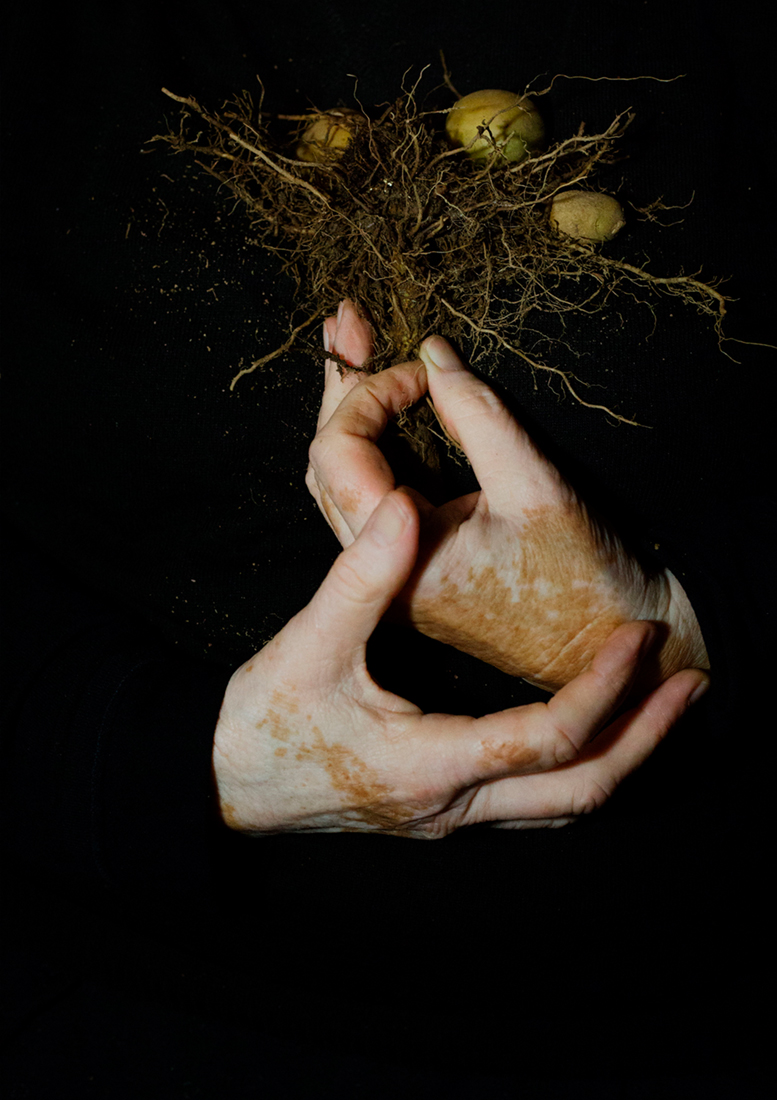Talent of the Year 2020 - NOMINEE: Ana Nunez Rodriguez
Photo © Ana Nunez Rodriguez
Ana Nunez Rodriguez
Cooking Potato Stories
Support this photographer - share this work on Facebook.
“When you say ‘potato’ the response is often an
autobiography; potatoes provide a way for us to speak
about ourselves” Earle, Rebecca. (2019). Potato. Bloomsbury Academic
What can a potato tell us about ourselves? What does it say about the construction of national identity? What role can new narratives about the potato play in creating expanded social imaginaries?Cooking Potato Stories is a translocal story between Colombia and Galicia (Spain) that explores the effects of colonization on our subjectivities and seeks to find ourselves face to face with those political, social, and emotional relationships with historical roots that persist today and that condition how we see ourselves and the others.
The potato is a plant native to Latin America that was carried back to Europe by the conquerors. After its introduction, it took a couple of centuries more before this tuber made it from the botanical gardens to the farmers’ fields. The history of the potato is marked by many obstacles to its adaptation and acceptance as a food crop: a long process of transformation, throughout which, many conflicts, beliefs and traditions stood in its way. Ultimately, these difficulties did not prevent the potato from taking root in the world food scene, adapting to each adoptive place and resignification according to the expectations of each different society. Attending to this long journey and process of adaptation reveals some ways that plants have served us in manifestations of our power over nature and other people. Here, this will serve to open a conversation about identity, politics, and some of the difficulties that must be overcome
when adapting to new contexts and the forms of power that inhere within.
This work is rooted in the tension between personal and social identity, and the historical and cultural influences that come to bear on its, and their, formation. In light of my own experience of moving between Latin America and Europe, I examine the role of the potato in Galicia and Colombia, respectively, as a means to explore the idea of how a given society comes to imagine itself and its world, as well as others. I reflect on how we build our personal and social imaginaries on the basis of the repertoire of images and ideas that is present in our consciousness, inspiring reactions and determining our values, judgments, opinions and behaviors. The potato packs a universe of symbolic information on identity, domination and social differentiation that I put to use here to reflect on the effects of colonization on our subjectivities, knowledge production and critical thinking.
I trial recipes that use this global food source as a way to connect with the collective consciousness through its solid ordinariness, its ability to root us into the ground. Transatlantic recipes that mix the “here” and the “there.” Using ingredients such as heritage, history, the imaginary, tradition, and autobiography, with these recipes I will call into question the ideologies, power and subjectivities behind existing narratives.
Each society develops a peculiar way of seeing itself or telling itself its history, at the end we all make sense of our lives through a combination of cultural and personal narratives that we build throughout our lives in relation to the cultural ones because it is through them that we make sense of our past, explain the present and anticipate the future. Since narratives are the first ways in which the human experience becomes significant, and the identity narrative is not based on the existence of unique symbolic, cultural, landscape, idiomatic or material elements, but on a peculiar combination and selection of these elements that may exist isolated or in other combinations; I have deliberately chosen a very varied nature of photographs, images from here and there, mixing various cultures thus getting closer to my own experience, a representation of my own tangle of narratives from the historical and social to
the more personal ones.
Today a region does not necessarily have to be a space defined politically or geographically, but a specific space for common stories and experiences, a state of mind rather than a place on the map. Therefore, finding our place means finding our place in a story and where the plot of these photographs intersect is where my place is located. I use photography to confront the ongoing legacies of colonialism, reconfiguring relationships with self, family and kin, colonizer, community and the natural world, to demonstrate that it is an “other” place that can produce critical knowledge.
About author:
I am a photographer with studies in Documentary Photography and Contemporary Creation from IDEP-Barcelona and Postgraduate in Photography from the National University of Colombia. In my work I focus on the relationship between the individual and the environment and how this affects at an emotional level, producing images full of fantasy and mystery that reveal a very personal vision of the social landscape. After living the last years in Colombia, my fields of interest have been influenced by how European and Latin America reality converge in my life, proposing games of contrasts full of irony where I interrogate myself about the construction of identity and the forms of power derived from it; I reflect on how it is marked by the collective memory and the cultural heritage. I am currently living in The Netherlands where I am studying the second year of the Master program "Photography and Society" at the Royal Academy of Art (KABK).

